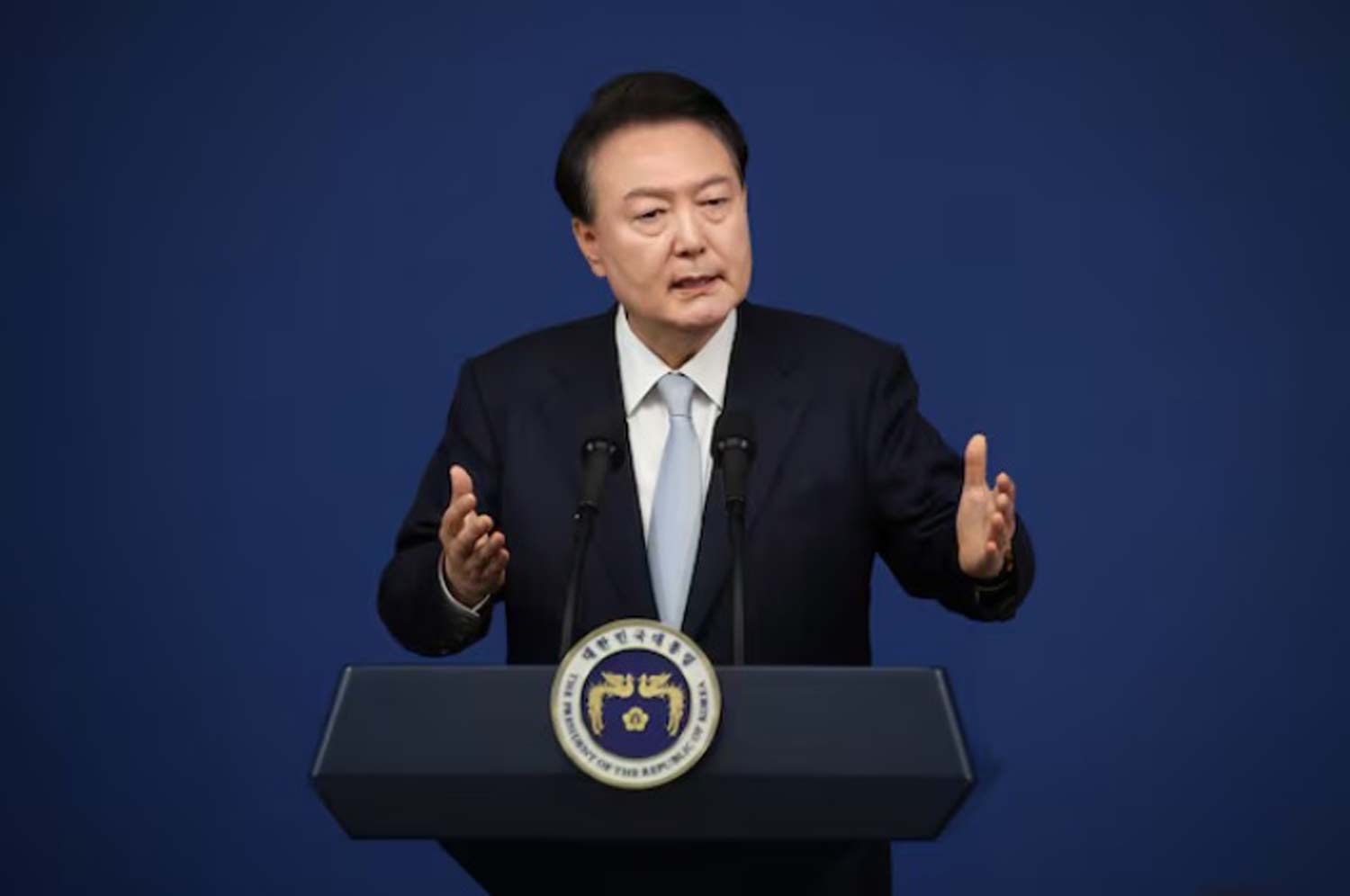South Korean President Yoon Suk Yeol has been taken into custody, as reported by the nation’s anti-corruption agency, marking a significant development in a prolonged political crisis that began with his unexpected martial law announcement last month.
Earlier today, South Korean officials investigating Yoon made a second attempt to apprehend the beleaguered leader at his official residence for questioning regarding his brief declaration.
For several weeks, Yoon has remained in his heavily secured residence, accompanied by his Presidential Security Service team, avoiding arrest while facing multiple investigations and an impeachment trial linked to his controversial decree.
He is sought for questioning in various inquiries, including allegations of inciting an insurrection, a serious offense that could result in life imprisonment or even the death penalty.
Attempts to detain him earlier this month were unsuccessful after a lengthy standoff, during which soldiers and members of the presidential security team prevented approximately 80 police officers and investigators from accessing the presidential compound.
On Wednesday, opposing protesters quickly gathered at the location. Footage from Reuters and CNN captured demonstrators arriving by bus and assembling in the streets surrounding the presidential residence.
Despite the frigid temperatures, some protesters were heard chanting phrases such as “resign,” “your time is up,” and “take responsibility.” In contrast, supporters of the beleaguered president could be heard shouting “invalid impeachment,” “free ROK, hurrah!” and “we won!”
The gatherings were monitored by lines of uniformed police, with a mix of police and protester buses stationed outside the president’s residence, effectively blocking the street.
A video from YTN captured a prominent sign on the back of one bus that read “Insurrection Department – Yoon Suk Yeol” in Korean, a slogan commonly associated with anti-Yoon demonstrations since the president enacted his martial law decree last month.
Earlier this month, a court granted a warrant for the president’s detention after Yoon, a former prosecutor, declined to respond to three summonses from investigators seeking his cooperation, as reported by the CIO.
This warrant permits investigators to hold Yoon for a maximum of 48 hours. The CIO must request an arrest warrant within that timeframe to extend his detention.
Martial Law Announcement
In a surprising late-night address on December 3, Yoon announced the imposition of martial law, asserting that opposition lawmakers had “paralyzed state affairs” and that this action was essential to “protect a liberal South Korea” from perceived threats by “anti-state elements.”
Approximately six hours later, members of the National Assembly, including some from Yoon’s own political party, voted to annul the declaration. The announcement sparked significant backlash from both the public and lawmakers across the political spectrum, evoking distressing memories of the nation’s authoritarian history.
Yoon’s legal team has maintained that the detention warrant is “an illegal, invalid warrant” and has pledged to pursue legal measures against its enforcement. Supporters of the suspended president have also argued that the actions taken against him violate South Korean law.
Despite the ongoing investigations and an impeachment trial being conducted by one of the nation’s highest courts, Yoon has remained resolute.
Last month, the former prosecutor-turned-politician lost his presidential powers after parliament voted to impeach him due to the decree. The final decision regarding his formal removal or reinstatement now rests with the Constitutional Court.
The impeachment trial commenced on Tuesday but concluded after only four minutes when the president chose not to attend. The trial, which may extend up to six months, is scheduled to continue on Thursday, regardless of Yoon’s presence.
Since Yoon’s declaration of martial law, the nation has experienced significant political turmoil, with parliament recently voting to impeach both the prime minister and acting president, Han Duck-soo, shortly after a similar vote against Yoon himself. The finance minister, Choi Sang-mok, is currently serving as acting president.
The Constitutional Court has committed to prioritizing the case against Yoon, alongside other impeachment proceedings initiated by the opposition against various officials in Yoon’s administration, including the justice minister and senior prosecutors.
Discover more from Defence Talks | Defense News Hub, Military Updates, Security Insights
Subscribe to get the latest posts sent to your email.





